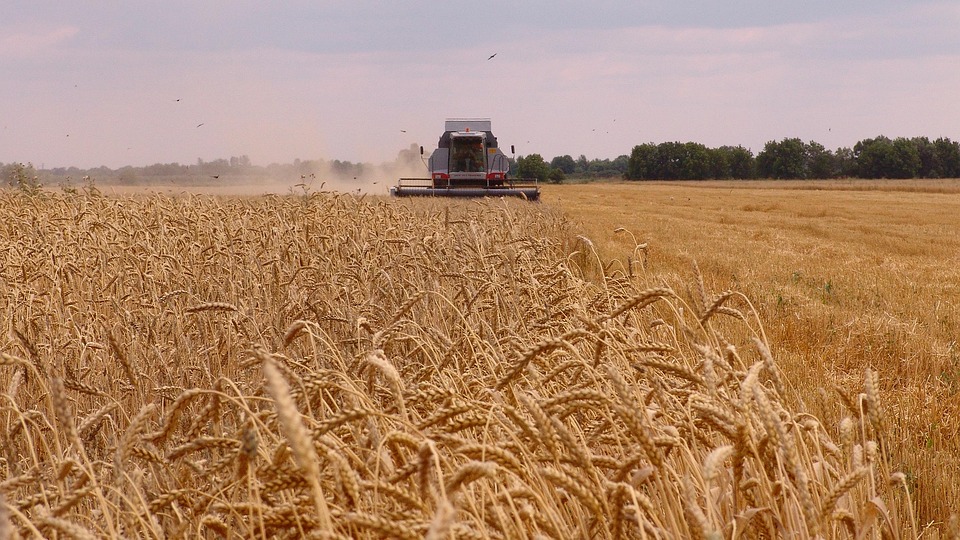Living off the grid has allowed me to truly appreciate the beauty and importance of sustainable farming and gardening practices. As I tend to my crops and watch them flourish, I am constantly reminded of the impact that sustainable agriculture can have on combating climate change. Not only does sustainable farming help reduce greenhouse gas emissions, but it also promotes biodiversity, conserves water, and enhances soil health. In this article, we will delve into how sustainable farming can play a crucial role in mitigating climate change, and how each one of us can contribute to a healthier planet through our daily food choices.
One of the main ways that sustainable farming can combat climate change is by reducing carbon emissions. Traditional farming methods, such as the use of synthetic fertilizers and pesticides, result in the release of large amounts of carbon dioxide into the atmosphere. In contrast, sustainable farming practices, such as crop rotation, cover cropping, and organic farming, help sequester carbon in the soil, thereby reducing greenhouse gas emissions. By choosing to support sustainable farmers and consume organic produce, individuals can significantly reduce their carbon footprint and contribute to a healthier planet.
In addition to reducing carbon emissions, sustainable farming also helps promote biodiversity and protect ecosystems. Industrial agriculture often relies on monoculture farming, which involves growing a single crop on a large scale. This practice not only depletes the soil of essential nutrients but also disrupts the natural balance of ecosystems and leads to the extinction of various plant and animal species. Sustainable farming, on the other hand, emphasizes diversity by planting a variety of crops, rotating crops seasonally, and creating habitats for beneficial insects and wildlife. By promoting biodiversity on their farms, sustainable farmers help maintain healthy ecosystems, protect pollinators, and preserve genetic diversity in our food supply.
Furthermore, sustainable farming plays a crucial role in conserving water resources. Agriculture accounts for a significant portion of global water usage, with conventional farming methods often leading to water waste through irrigation and water-intensive practices. Sustainable farming techniques, such as rainwater harvesting, drip irrigation, and water-efficient crop varieties, help reduce water consumption and promote water conservation. By adopting sustainable farming practices, farmers can ensure a more resilient and sustainable water supply for future generations, especially in the face of worsening droughts and water scarcity due to climate change.
Moreover, sustainable farming improves soil health and fertility, which is essential for producing nutritious and resilient crops. Industrial agriculture relies heavily on chemical inputs that degrade soil quality over time, leading to soil erosion, nutrient depletion, and decreased crop yields. Sustainable farming practices, such as composting, crop rotation, and no-till farming, help build healthy soils by enhancing organic matter, improving soil structure, and promoting beneficial microbial activity. Healthy soils not only produce higher-quality crops but also sequester carbon, retain water, and reduce the risk of erosion and drought. By focusing on soil health, sustainable farmers can create thriving ecosystems that support long-term agricultural productivity and climate resilience.
In conclusion, sustainable farming is a powerful tool for combating climate change and creating a more sustainable and resilient food system. By reducing carbon emissions, promoting biodiversity, conserving water, and improving soil health, sustainable farmers play a crucial role in mitigating the impacts of climate change and creating a healthier planet for future generations. As consumers, we can also support sustainable farming by choosing organic and locally grown produce, reducing food waste, and advocating for policies that promote sustainable agriculture. Together, we can harness the power of sustainable farming to address climate change and build a more sustainable and equitable food system for all.
Pro Tips:
1. Support local farmers markets and community-supported agriculture (CSA) programs to access fresh, locally grown produce and support sustainable farmers in your area.
2. Start a small garden at home to grow your own fruits, vegetables, and herbs using sustainable gardening practices such as composting, mulching, and water conservation techniques.
3. Educate yourself about sustainable farming practices and the importance of supporting regenerative agriculture for a healthier planet and future.



